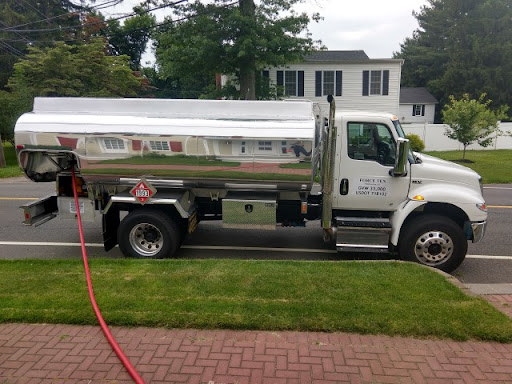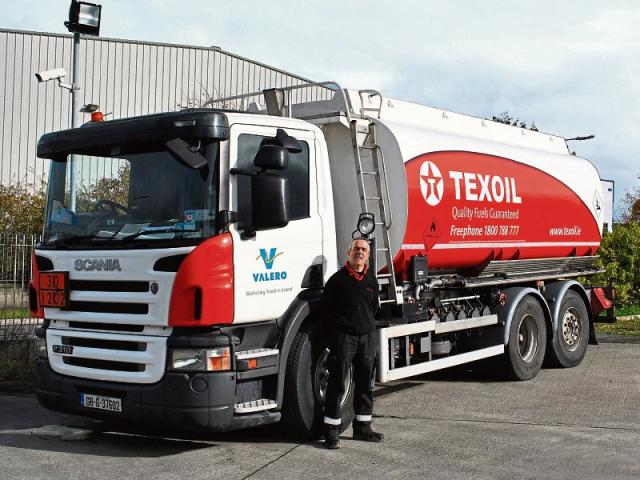Living off the grid offers the ultimate freedom from conventional utility systems, allowing individuals to become self-reliant and embrace a more sustainable lifestyle. While the charm of off-grid living lies in the ability to live independently, it also presents challenges, particularly when it comes to staying warm during colder months. In regions with harsh winters, finding an efficient and reliable heating source is paramount. Heating oil is one such solution that plays a significant role in ensuring comfort and warmth for off-grid dwellers.
In this blog post, we’ll explore the importance of heating oil in off-grid living, its benefits, and how it enhances the overall off-grid experience.
The Need for Heating in Off-Grid Living
Off-grid living often means being away from the reach of central heating systems powered by electricity or natural gas. This can present challenges, particularly in colder climates, where winters can be long and harsh. Without a reliable heat source, temperatures inside a home can plummet, making it uncomfortable and even dangerous to live in. To address this, off-grid homeowners must find alternative methods to heat their homes.
For those who have chosen to embrace renewable energy sources, such as solar or wind, heating oil can be an essential part of the equation. While these alternative energy sources are excellent for electricity production, they often do not provide sufficient heating on their own, especially during extended cloudy or calm days. This is where heating oil steps in, offering a reliable, independent, and cost-effective solution for warmth.
How Heating Oil Works
Heating oil, also known as fuel oil, is a liquid petroleum product used in off-grid heating systems. It is typically stored in large tanks on the property and fed into a furnace or boiler, where it is burned to produce heat. This heat is then distributed throughout the home via radiators, underfloor heating, or forced-air systems, depending on the specific setup.
Heating oil is stored in tanks, which can range from a few hundred to several thousand liters, depending on the needs of the household. This allows for efficient and long-term storage, ensuring that homeowners won’t have to worry about running out of fuel during the colder months. In off-grid settings, this can provide a significant advantage over other heating methods that may require more frequent attention or maintenance.
Why Heating Oil is Ideal for Off-Grid Living
1. Reliability in Remote Locations
One of the biggest advantages of heating oil for off-grid living is its reliability. Unlike electricity, which may be unreliable in areas with limited access to power grids, heating oil can be stored for long periods and used when necessary. In remote locations where fuel delivery trucks may be the only option to refill a tank, heating oil offers the assurance that you’ll always have access to a reliable heating source.
Even if you are far from the nearest town or city, heating oil systems are straightforward to maintain, and the storage tanks can be filled on a seasonal or bi-annual basis. As long as there is oil in the tank, the system can continue to function, ensuring that your home stays warm even in the most remote locations.
2. Cost-Effectiveness
Heating oil can be an affordable option for off-grid heating. While the initial setup, including purchasing and installing a tank, furnace, or boiler, can be more expensive than other systems, the ongoing cost of heating oil can often be more predictable and lower than alternatives such as propane or electricity from off-grid solar systems.
In many rural or isolated areas, heating oil prices tend to fluctuate less than natural gas or propane, making it easier for off-grid dwellers to plan their heating costs over time. Additionally, purchasing heating oil in bulk can lead to further savings. Off-grid homes can take advantage of larger storage tanks, allowing them to buy in bulk when prices are lower, which helps reduce costs in the long run.
3. Consistency of Heat
Another key advantage of heating oil is the consistency of heat it provides. Unlike electric systems, which may experience interruptions due to weather or technical issues, oil-burning systems provide steady, reliable warmth. Heating oil systems can quickly heat a space, even on the coldest days, and maintain a constant, comfortable temperature.
In contrast to wood stoves, which require frequent monitoring and feeding to maintain a fire, heating oil provides a set-it-and-forget-it heating solution. This is especially useful for those who live in regions with extended winters, as it minimizes the amount of attention needed to keep the house warm.
4. Low Maintenance and Durability
Heating oil systems are relatively easy to maintain and have a long lifespan. The tanks used for storing oil are durable and designed to last for many years, often with little more than annual maintenance required. Additionally, the oil burners in most heating systems are reliable and built to run for extended periods without major breakdowns.
Compared to other off-grid heating options, such as solar thermal systems or biomass, heating oil offers a lower-maintenance alternative that still provides consistent results. Solar systems, for example, require regular cleaning and occasional repairs, while biomass systems need constant fuel input and are prone to mechanical issues. In contrast, heating oil systems are generally more hands-off, which can be a huge benefit for people who want to minimize time spent on maintenance.
5. Independence from Weather Conditions
Solar and wind-powered heating systems are heavily reliant on weather conditions. Solar panels, for instance, generate less power during cloudy days or in the winter months when sunlight is limited. Similarly, wind turbines only work when there’s enough wind to generate electricity. In comparison, heating oil doesn’t depend on weather patterns. Whether the skies are overcast or the wind isn’t blowing, heating oil systems continue to function, ensuring your home stays warm.
This reliability, regardless of the weather, makes heating oil an attractive choice for off-grid homes, especially for those who live in climates with unpredictable or extreme weather.

Environmental Considerations
While heating oil offers many practical benefits for off-grid living, there are environmental considerations to take into account. Oil is a fossil fuel, and burning it releases carbon dioxide and other pollutants into the atmosphere. For those looking to minimize their carbon footprint, this can be a concern.
However, the environmental impact can be mitigated in several ways. For example, some off-grid homes choose to use biodiesel or other alternative fuels made from renewable resources. These fuels can often be used in the same heating systems designed for traditional heating oil, offering a more sustainable alternative without compromising the benefits of oil heating.
Additionally, many off-grid homeowners also implement energy-efficient building practices, such as passive solar heating, insulation, and airtight construction, to reduce the overall need for heating, which in turn minimizes fuel consumption.
Conclusion
Heating oil plays a crucial role in enhancing the comfort, reliability, and independence of off-grid living. Whether you live in a remote cabin or a sustainable off-grid home, heating oil provides an effective solution for maintaining warmth during harsh winters. With its cost-effectiveness, low maintenance, and consistency, it stands as one of the most reliable methods for off-grid heating. While it’s essential to consider the environmental impact of heating oil, alternative fuels such as biodiesel can offer a more sustainable approach.
In the end, heating oil offers off-grid dwellers the ability to stay warm and comfortable, regardless of where they call home. When paired with other renewable energy solutions, it ensures that off-grid living doesn’t have to mean sacrificing comfort for sustainability. To explore more about these solutions, visit the corporate home of industry leaders dedicated to combining comfort and sustainability for off-grid living.



